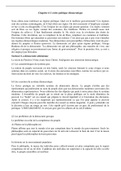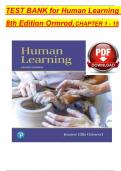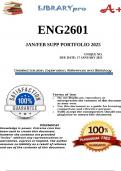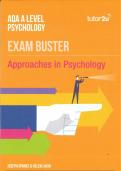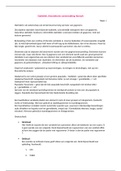Exam (elaborations)
PYC2603 Exam Pack
- Institution
- University Of South Africa (Unisa)
These are Exam questions and solutions (Study Notes Included) as well as those that were found in assignments, study guides and practice questions. When you work through these you will gain an excellent understanding of concepts, theories, techniques and methods which will allow you to answer exam ...
[Show more]




